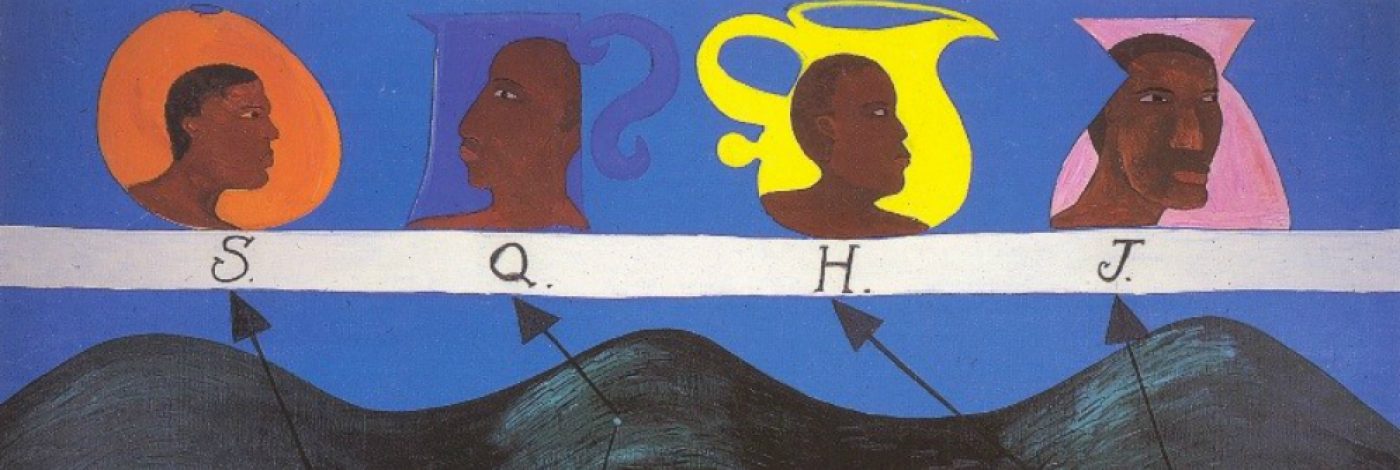The Centre for Black Humanities is a research centre dedicated to researching, writing and teaching the artistic and intellectual work of people of African descent.
Bringing together perspectives from English, Film and Television, History, History of Art, Modern Languages, Music, Philosophy, and Politics, our goal is to create an interdisciplinary space for the discussion of black thought and the critical study of race, migration, diaspora, transnationalism and globalisation.
We aim to consider the varied and contested meanings of ‘Black’ in historical and contemporary contexts alongside the omission of non-white voices in (local) history and university curricula. In so doing we hope to begin a dialogue with students, other faculty members and staff around the University and beyond about the place of Black people in higher education.
We acknowledge that Black academics and students are underrepresented in UK universities and we are committed to promoting initiatives aiming to increase the number of Black and minority ethnic scholars and students.
Management Team Members
Centre Intern
Centre Members

Foluke Ifejola Adebisi is a Senior Lecturer at the Law School, University of Bristol whose scholarship focuses
on decolonial thought in legal education. In 2017, she co-designed a Law and Race unit, which is one of the very few of its kind within the UK. In September 2019, she convened the first ‘Decolonisation and the Law’ conference at the University of Bristol. Her decolonial scholarship, which is pedagogical as well as jurisprudential, examines what happens at the intersection of legal education, law, society and a history of changing ideas of what it means to be human. She is also the founder of Forever Africa Conference and Events (FACE), a Pan-African interdisciplinary conference hosted in Bristol. She blogs about her scholarship, pedagogy and interrelated ideas on her website ‘Foluke’s African Skies’ at https://FolukeAfrica.com.

Dr Joanna Burch Brown
Philosophy
Joanna Burch-Brown is a Senior Lecturer and co-Director of Teaching for Philosophy at University of
Bristol. In addition to her current work on contested heritage and public memory of slavery and colonialism, Joanna has broad interests in transitional justice, peacebuilding, intergroup attitudes, reducing prejudice, environmental ethics, sustainable development, Kantian ethics, philosophy of science and Buddhist philosophy. Joanna directs the Fulbright Institute’s most popular summer school, on ‘Arts, activism and social justice’, rated by 100% of its latest cohort as ‘outstanding’. She is a founding member of the University of Bristol Centre for Black Humanities, and has had research collaborations with the Countering Colston campaign in Bristol, and with the International Network of Scholars and Activists for Afrikan Reparations. Before coming to Bristol, she did her PhD at King’s College, Cambridge, in the History and Philosophy of Science Department, and a postdoctoral research fellowship at Oxford. She did her BA at Oberlin College. In 2003 she received a Compton Fellowship to establish Forest Farm Peace Garden, a therapeutic gardening project in East London, working with refugees and asylum seekers.

Dr Ruth Bush
French
Ruth Bush is Associate Professor in African and French Cultural Studies. Her research and teaching concerns
African and Diasporic literary and cultural production, with a particular interests in material print cultures (i.e. histories of publishing and reading), literary translation, gender, and decolonial practice. She has published a history of New Beacon Books, the UK’s first radical black bookshop and publishing house; and co-produced an exhibition and digital resource about the pioneering Senegalese women’s magazine, Awa: la revue de la femme noire. Her first academic monograph was Publishing Africa in French: Literary Institutions and Decolonization 1945–67 (LUP, 2016), which received the First Book Award (Scholarship) from the African Literature Association. Her second academic monograph, Translation Imperatives (CUP) is forthcoming. She is currently working on a 5-year ERC-funded project, ‘The Creative Lives of African universities’, with colleagues in Senegal, Cameroon, Côte d’Ivoire and Benin.
Her research has appeared in journals including Journal of Commonwealth Literature, Francosphères, Journal of Postcolonial Writing and Cahiers d’Etudes africaines. She is a founding member of the steering committee for the Centre for Black Humanities and she sits on the board of Afrika Eye Festival, the largest African film festival in the South West.
Ruth teaches a range of topics in African literature, translation, and cultural studies at undergraduate and postgraduate levels. She welcomes enquiries from prospective students. She convenes the following units: Introduction to Francophone African Literature, Journeys Through Poetry, African Narratives of Migration, Pan-Africanism: ideas and archives, Theorizing Violence. She also contributes to postgraduate units on Global Cultures of the Book, Migration and Mobility, Cultural Imagination of Gender, Black Humanities, and Research Skills. In 2016/17 she was Programme Director on the Foundation in Arts and Humanities, a 1-year course designed for students without conventional academic qualifications and which provides access to undergraduate degrees. From 2019-2021 she was Programme Director for the MA Black Humanities.

Dr Egle Cesnulyte
SPAIS
Egle Cesnulyte is Senior Lecturer in Politics and International Development. Her research and teaching concerns
More particularly, she explores the ways that global economic and political structures are gendered and limits individuals’ agency.
For the past decade Egle has been working with sex workers in Kenya to explore the political economy of Kenya and the limits of women’s agency within it. Her work with women selling sex in Mombasa and investigation of their work and livelihood strategies resulted in her first manuscript Selling Sex in Kenya: Gendered Agency under Neoliberalism (CUP, 2019). Egle’s later work has moved to explore sex worker activism and politics in eastern Africa.
Currently Egle is developing her research in two new directions. First, her work in the team developing research project on informality in food security strategies of Turks and Caicos Islands. Second, relatedly, she is interested in exploring the coloniality and gendered nature of the global infrastructure, and food supply chains in particular.

Dr Lorenzo Costaguta
History
Lorenzo Costaguta is a Lecturer in U.S. History. He is a historian of race, class and radicalism
in the United States and Europe, specialising in scientific racism, Marxism and the transnational circulation of ideas in the global left. He is the author of Workers of All Colors Unite: Race and the Origins of American Socialism (University of Illinois Press, 2023).

Professor Madge Dresser
History
Madge Dresser F.R.H.S. was Associate Professor of History at the University of the West of England until
2016. When she retired she was made an Honorary Research Fellow at UWE and was subsequently appointed as an Honorary Professor of History with the Department of Historical Studies at the University of Bristol. Her research interests include the history of Atlantic Slavery and its legacy, slavery and memory, the history of ethnic minorities in Britain, gender history and public history. She has published widely in these areas and has worked as a consultant for local and national museums and public bodies such as the MShed in Bristol and the National Archives. She was an early advocate of the Centre for the Black Humanities.

HiPLA
Bethan Fisk is an historian of colonial Latin America and the Caribbean. My research focuses on slavery, cultural geographies, and the production of knowledge by people of African and indigenous descent in Colombia and the African diaspora.
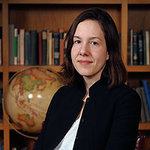
Dr Erin Forbes
English
Erin Forbes is a Lecturer in African American Literature. She studies African American and U.S. literature of the
long 19th century, always with an eye toward the relay between racialized formations of the human and the aesthetic. She has written on literary and historical figures including Hector St. John de Crèvecoeur, Benjamin Rush, Richard Allan, Absalom Jones, David Walker, Nat Turner, Thomas De Quincey, Edgar Allan Poe, Nathaniel Hawthorne, Harriet Beecher Stowe, and Harriet Jacobs. She has also explored the archives of Atlantic slave trade, late eighteenth-century yellow fever epidemics, crime writing in the popular periodical press, the penitentiary, slave revolts, and the Spiritualist movement.

Dr Albertine Fox
French
Albertine Fox is currently developing a book project on listening spaces and the face-to-face encounter
documentaries from France and the Francophone world. Her research explores the subversive potential of listening in relation to Western logocentric tendencies in experimental Francophone screen media, with a focus on ‘listening spaces’ and ‘listening silence’. Her other recent publications focus on films and installations by Chantal Akerman. Albertine convenes the undergraduate unit ‘Francophone Women Directors: Documentary Filmmaking’ and she also teaches sessions on ‘Gender, Sexuality and Cinema’. At postgraduate level, her teaching covers set work by Chantal Akerman, Gloria Anzaldúa, and Jocelyne Saab. Albertine’s first monograph, Godard and Sound: Acoustic Innovation in the Late Films of Jean-Luc Godard (Bloomsbury, 2017/2020), re-evaluates the multimedia work of the Swiss-French filmmaker Jean-Luc Godard from an auditory perspective, expanding current typologies of film sound and prompting new debates about the relationship between music, sound, the moving image, and the film spectator.
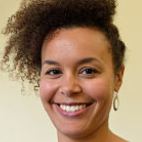
Dr Josie Gill
English
Josie Gill is Senior Lecturer in Black British Writing. Her research focuses on contemporary literature,
in particular on Black British, Caribbean and African American writing. She is interested in where and how literary and scientific ideas intersect with regard to questions of race. This interest has taken several forms: Josie’s book Biofictions: Race, Genetics and the Contemporary Novel (2020) explores how the contemporary novel has drawn upon and intervened in debates about race in late 20th and 21st century genetic science. It won the British Society for Literature and Science Book Prize for 2020. From 2016-2017 Josie was Principal Investigator of the AHRC funded project ‘Literary Archaeology’: Exploring the Lived Environment of the Slave, which brought together archaeological scientists, creative writers and literary scholars to develop a new, interdisciplinary approach to the study of the lives of enslaved people. She is also interested in how the current movement to decolonise universities might impact upon interdisciplinarity research and collaboration. Josie is Principal Investigator of the Wellcome Trust funded project Black Health and the Humanities(2020-2022) located at the Centre for Black Humanities.
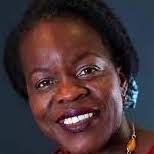
Dr Marie-Annick M Gournet
English
Marie-Annick M Gournet is Senior Lecturer and Director of Part-time Programmes, Department of English.

Dr Adom Philogene Heron
Anthropology and Archeology
Adom Philogene Heron is a Lecturer in Visual Anthropology having returned to Bristol (his hometown)
from Goldsmiths University where he worked for 5 years following his PhD (St Andrews, 2017). Centred in the Caribbean, his ethnographic work flows along three streams: (I) black ecologies, hurricanes & repair; (II) Bristol’s spectral post-slavery geographies; & (III) Caribbean kinship, fatherhood & their affects. Methodologically, he is committed to person-centred, collaborative & experimental approaches (incl. digital cartography, visual, sound, Caribbean poetics) and his scholarly practice attempts the ‘grounding’ of urgent questions –e.g. on environmental racial justice, how we remember slavery and Caribbean fatherhood– in public facing dialogues.
Adom is PI on the GCRF Surviving Storms | CCC project (2019-23), which digitally maps hurricane survivals and repair in Dominica. He is author of the book Still Standing (Papilotte Press, with photographer Marica Honychurch) and has written for Antipode, JRAI, Transforming Anthropology, Sargasso, Suomen Antropologi, SAA Archaeological Record, Public Books, Singapore Journal of Tropical Geography and has work featured inseveral edited books. He has also appeared on a few podcasts (Surviving Society, Geographies of Risk, Mandem x Barbican) and is part of The Dark Laboratory (Cornell) and Critical Ecologies (Goldsmiths) collectives.
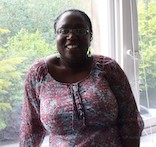
Dr Afua Twum-Danso Imoh
Policy Studies
Afua Twum-Danso Imoh is Senior Lecturer in Global Childhoods and Welfare.
Drawing upon an interdisciplinary background, Afua’s research focuses on children’s rights and social and cultural norms; parent-child relations and the implications for children’s wellbeing and rights; the impact of historical developments and more recent social changes on constructions of childhood and child rearing practices; and children’s participatory rights with a focus on trying to move beyond voice-centred forms of participation. Much of this research has concentrated on Ghana and Nigeria. Over the years she has received external funding from the Nuffield Foundation, the ESRC and the British Academy. She is also the lead co-editor of three edited collections: Childhoods at the Intersection of the Global and the Local (Palgrave, 2012), Children’s Lives in an Era of Children’s Rights: The Progress of the Convention on the Rights of the Child in Africa (Routledge, December 2013) Global Childhoods Beyond the North-South Divide (Palgrave, 2018). Afua is currently a series editor for the Palgrave Macmillan Study of Childhood and Youth Series and Editorial Board Member for Third World Thematics, Children & Society, Childhood: A Journal of Global Child Research and the Rutgers Series in Childhood Studies.

Billy Kahora
English
Billy Kahora is Lecturer in Creative and Professional Writing in the English Department at the University of
Bristol. His short fiction and creative non-fiction have appeared in Chimurenga, McSweeney’s, Granta Online, Internazionale and Vanity Fair and Kwani?. He has written a short story collection titled The Cape Cod Bicycle War and Other Youthful Follies released in 2019 and a non-fiction book titled The True Story Of David Munyakei in 2012. His story Urban Zoning was shortlisted for the Caine Prize For African Literature in 2012, The Gorilla’s Apprentice in 2014. He wrote the screenplay for the film Soul Boy and co-wrote Nairobi Half Life which both won the Kalasha awards. He has recently finished a novel titled The Applications.
He was till recently Managing Editor of Kwani Trust editing 7 issues of the Kwani journal. As Kwani Litfest Curator he was involved in several chapters including Kwani Litfest 2015: Writers In Conversation: Beyond The Map Of English.
His research interests include narrative voice and multi-vocality in the novel; creative writing teaching histories and pedagogies; depictions of mental health in fiction; realisms, the short story and creative non-fiction.

Dr Doseline Kiguru
English
Doseline Kiguru is Lecturer in World Literatures in English at the University of Bristol.
Her primary research interest is postcolonial print and digital cultures with a focus on African literary and cultural production mechanisms. Her research engages with cultural and literary production in Africa with a focus on different literary platforms such as publishing and prize industries, book fairs and festivals, literary magazines and writers’ organisations, while exploring the networks they create and the effects that these have on contemporary African literary texts. She has published widely in this area and her articles have appeared in journals including Journal of English in Africa, Social Dynamics Journal, African Studies Journal and Tydskrif vir letterkunde Journal. She is currently working on her first monograph.

Professor Madhu Krishnan
English
Madhu Krishnan is Professor of African, World and Comparative Literatures. Her research considers
contemporary African writing in the context of transnational, world and global literary production. She is particularly interested in the ways in which literary writing contributes to, subverts and is shaped by a broader, a priori image of ‘Africa’ circulating in a global imaginary, as well as the varied and contested registrations of this process across differing scales of expression and geography. To date, she has published three monographs: Contemporary African Literature in English: Global Locations, Postcolonial Identifications (Palgrave Macmillan, 2014), Writing Spatiality in West Africa: Colonial Legacies in the Anglophone/Francophone Novel (Boydell and Brewer, 2018 – part of the African Articulations series) and Contingent Canons: African Literature and the Politics of Location (Cambridge University Press, 2018 – part of the Elements series).
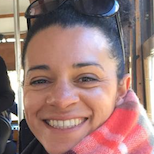
Dr Amy Laurent
English
Amy Laurent is Lecturer in Arts and Humanities as the University of Bristol.

Dr Su Lin Lewis
History
Su Lin Lewis is Associate Professor in Modern Global History. She has an interest in cities,
transnational activist movements, gender, decolonisation, and development. Her first monograph, Cities in Motion: urban life and cosmopolitanism in Southeast Asia 1920-1940 (2016) won the Urban History Association Prize for Best Book (Non-North America, 2015-2016). Over the past five years, she has co-led a project on Afro-Asian solidarity networks in the Cold War. Su Lin is currently an AHRC Early Career Leadership Fellow working on a project on Socialist Internationalism in the Afro-Asian World. She is a member of the editorial board of Past and Present and on the Board of Directors of the Global Urban History project.

Jacqueline Maignard is Associate Professor, Department of Film and Television.
Her research is primarily on histories of the cinema in Africa, particularly South Africa. South African National Cinema (Routledge, 2007), funded in part by the Arts and Humanities Research Council, is an historical overview of cinema produced in South Africa in relation to questions of race and national identity. It maps cinema’s role in the making, entrenching and undoing of apartheid from early silent film to anti-apartheid and post-apartheid films. Research into colonial film includes a focus on the colonial filmmaker Donald Swanson, who directed the historically significant African Jim (popularly known as Jim Comes to Joburg [1949]), (see her article in the Journal of Southern African Studies [2013]). Research on identity in African cinema includes a focus on Abderrahmane Sissako’s Bamako (2006), (two articles, Screen [2010) and Critical African Studies [2013]). Her current research investigates the globalization of Hollywood and British cinema and its impact on black, South African audiences, beginning with District Six, Cape Town, an area demolished under apartheid, drawing on recorded life histories of former residents and extending to other similar areas across the country. She is an Honorary Research Associate in the Archive and Public Culture Research Initiative, University of Cape Town, and a member of the History of Moviegoing, Exhibition and Reception (HoMER) Network. Jacqueline co-leads the Screen Research cluster at the University of Bristol.

Dr Stephen Mawdsley
History
Stephen Mawdsley is Lecturer in Modern American History. Stephen is a social historian of twentieth-
century American medicine and public health. He is interested in the history of poliomyelitis and immunization programs undertaken in the United States to control disease. Stephen is also Principal Investigator on a Wellcome Trust funded research project, entitled The Jake Walk Blues, which focuses on the history of alcohol, disability, and stigma during America’s Great Depression.

Dr Peace Medie
Sociology, Politics and International Studies
Peace A. Medie is Senior Lecturer in Gender and International Politics in the School of Sociology,
Politics, and International Studies. She is the author of Global Norms and Local Action: The Campaigns to End Violence against Women in Africa (Oxford University Press, 2020), and the novel, His Only Wife (Algonquin Books, 2020).

Dr Jessica Moody
History
Jessica Moody is Senior Lecturer in Public History. Her research concerns how people engage with the
past, through collective memory, public history, and heritage. Jessica is specifically interested in the representation of, and engagement with, difficult and dissonant pasts, especially those concerning contested racial histories, transatlantic slavery and warfare. Her first monograph, The Persistence of Memory: Remembering slavery in Liverpool, ‘slaving capital of the world’, analyses how transatlantic slavery has been ‘remembered’ in Liverpool, the largest slave-trading port city in Europe (out now with Liverpool University Press, in hardback, paperback and open access (https://www.liverpooluniversitypress.co.uk/books/isbn/9781789622577/).

Dr Sumita Mukherjee
History
Sumita Mukherjee is Associate Professor in Modern History. Her research and teaching
interests lie in the fields of migration, race and gender in Britain and the British Empire at large. These interests include Black Britons in the Victorian era, and South Asian and Black solidarities in the interwar period. She has written widely on the issue of race in the British suffrage movement and is one of the deputy editors of the Women’s History Review.

Dr José Lingna Nafafé
Hispanic, Portuguese and Latin American Studies
José Lingna Nafafé is Senior Lecturer in Portuguese and Lusophone Studies and co-Director of Teaching
for Hispanic, Portuguese and Latin American Studies at University of Bristol. Lingna Nafafé’s academic interests embrace a number of inter-related areas, linked by the overarching themes of: Lusophone Atlantic African diaspora, seventeenth and eighteenth century Portuguese and Brazilian history; slavery and wage-labour, 1792-1850; race, religion and ethnicity; Luso-African migrants’ culture and integration in the Northern (England) and Southern Europe (Portugal and Spain); ‘Europe in Africa’ and ‘Africa in Europe’; and the relationship between postcolonial theory and the Lusophone Atlantic.
In 2016, he was also awarded a Leverhulme Research Fellowship to undertake archival research for the project “Freedom and Lusophone African Diaspora in the Atlantic”. Lingna Nafafé is Co-Investigator for a recently awarded ERC Advance Grant project with Prof. Julia O’Connell Davidson, the Principal Investigator, University of Bristol; to carry out 5 years research in 5 countries: UK, Spain, Brazil, France, Italy, on “Modern Marronage? The Pursuit and Practice of Freedom in the Contemporary World”.
He was Programme Director of the MA in Black Humanities at the University of Bristol. Lingna Nafafé was nominated on ‘The BME Power List 2018 – Bristol’s 100 Most Influential BME People’ for having “advanced the history on resistance to enslavement through ground-breaking research which African Voices Forum shared at the Afrika Eye Film Festival in 2017.” Lingna Nafafé has in press his second monograph with the title, Lourenço da Silva Mendonça, and the Black Atlantic Abolitionist Movement in the 17th Century, which will be published by Cambridge University Press in 2022. The monograph is a ground-breaking contribution to scholarship, based on an original, in-depth study in more than thirty archives and libraries in six countries, this innovative book provides substantial new evidence of the transnational and highly organised African abolitionist movement in a crucial period in global history.

Dr Saima Nasar
History
Saima Nasar is Lecturer in the History of Africa and its Diasporas. She is a social and cultural historian
who works on histories of race, empire, and immigration. Committed to multi-archival and interdisciplinary research, her previous and future work contributes to developing comparative and interdisciplinary approaches in the fields of migration and imperial studies. Saima is Reviews and Special Issues editor of ‘Immigrants & Minorities: Historical Studies in Ethnicity, Migration and Diaspora’, and she sits on the international board of ‘Twentieth Century British History’.
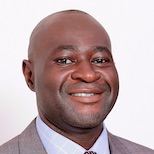
Dr Samuel Okyere
Sociology
Sam Okyere is a socio-anthropologist and Senior Lecturer in Sociology at the School of Sociology,
Politics and International Studies (SPAIS), University of Bristol. He is primarily interested in the linkages between human and child rights, power, class, ethnicity, (un)freedom, inequality, globalisation, and the legacies of slave trade and colonisation, mainly but not exclusively in African contexts. Over the past decade, he has explored these issues through extensive field research on child and youth labour (in agriculture, mining, fishing, and other sectors) migration, artisanal mining, sex work, forced labour, trafficking, and other phenomena popularly labelled as ‘modern slavery’.
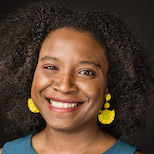
Christelle Pellecuer
Anthropology and Archaeology
Christelle Pellecuer is based in the Department of Anthropology and Archaeology.

Dr Beth Rebisz
History
Beth Rebisz is a Lecturer in the History of Modern Africa. She is a social historian with a
particular focus on gender and women’s history. Her research focuses on African oral histories, race and ethnicity, colonial violence, histories of colonialism and subaltern methodologies. Alongside Beth’s academic research, she is a member of the Museum of British Colonialism‘s (MBC) organising committee. MBC is a joint UK/Kenya initiative founded to restore and make visible the history of British colonialism which has been suppressed, destroyed, or underrepresented for too long.

Dr Leighan M Renaud
English
Leighan Renaud is a lecturer in Caribbean Literatures and Cultures. Her research focuses on contemporary Anglophone Caribbean literature
and she is primarily interested in how contemporary writers from the region engage with themes such as gender, family, neo-coloniality, legacies of slavery, and language. Leighan is currently developing her book project which examines the representation of matrifocality in twenty-first century Caribbean fiction, and argues that matrifocality is represented, not only as an integral component of family and community life, but also as an act of marronage and a symbol of resistance against patriarchal and Eurocentric normativity.

Dr Elizabeth Robles
History of Art
Elizabeth Robles is Lecturer in Contemporary Art. She is currently undertaking a British
Academy Postdoctoral Fellowship for a project entitled ‘Making Waves: Black Artists & ‘Black Art’ in Britain from 1963-1982′.
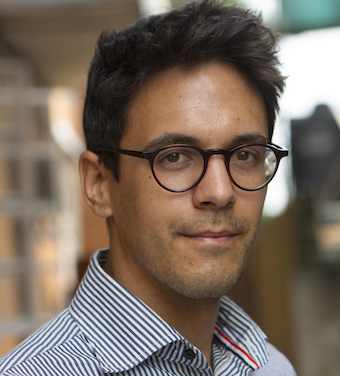
Dr Connor Ryan
Film and Television
Connor Ryan is Lecturer in World Cinema in the Department of Film and Television. His research
deals with African and Caribbean film and media, and Nollywood, in particular, which he studies as an industry and a body of screen texts. He is interested in the intersection of screen media and everyday urbanism in cities of the global South.
His forthcoming monograph Lagos Never Spoils: Nollywood and Nigerian City Life (University of Michigan Press, 2023) explores the relationship between Nigerian screen media and the city of Lagos. The project models its critical method after three key dynamics of city life: ambivalence, entanglement and enclosure. These concepts in turn guide his study of Nollywood’s production, distribution and exhibition in Lagos, as well as his interpretation of celluloid films, television programs, video films, and streaming content produced in or about the city. In this fashion, the book reveals Nollywood’s emplacement within Lagos, and the telling ways city life become enregistered in screen texts.
Connor joined the University of Bristol in 2022. Before this he was Lecturer in Film at University of the West Indies—Mona, Jamaica. His research in Lagos has received support from a Fulbright Fellowship (2012-13) and a West African Research Association Postdoctoral Fellowship (2018).

Dr Florian Scheding
Music
Florian Scheding is Senior Lecturer in Music. His research focuses on music and migration,
especially the displacement of European musics and musicians caused by the catastrophes that characterise the 20th century. Florian has published on migratory musics in all its forms, spanning various genres from functional to popular to art musics. His work has been published in numerous edited collections, journals, encyclopedias, and elsewhere.
His most recent book, Musical Journeys: Performing Migration in 20th-century Music explores concepts of migratory musical culture and aesthetics and links these to wider socio-cultural backgrounds.

Professor Kate Skinner
History
Kate Skinner is Professor of African History. She is a historian with particular interests in twentieth-century West Africa.
Her first book focused on the connections between the expansion of formal schooling and mass literacy, new forms of political mobilisation, and competing ideas about citizenship in the Ghana-Togo borderlands in the era of decolonisation and new nationhood. These interests were further developed in a collaborative book projectwith Prof Wilson Yayoh (University of Cape Coast, Ghana) on print cultures in the Ghana-Togo borderlands, and particularly on an Eʋe-language newspaper titled Ablɔɖe Safui (the Key to Freedom). Most recently, Kate has worked on histories of gender activism in postcolonial Ghana. Alongside Prof Akosua Adomako Ampofo (Institute of African Studies, Ghana), she was joint lead researcher and co-producer of the film When Women Speak (directed by Aseye Tamakloe).

Dr Florian Stadtler
English
Florian Stadtler is Lecturer in Literature and Migration.
His research is focused on South Asian Literatures and Cinemas as well as Black British and South Asian British Film, History, Drama and Writing. Historically invested, his research draws extensively on archival materials and the intersections of Black and South Asian anti-colonial activism. He also researches German colonial histories in East Africa, the work of Nuruddin Farah and Abdulrazak Gurnah. Among his publications is the article “Theatres of Memory; Un-silencing the Past – Steve McQueen’s ‘Small Axe’ Anthology” in Transnational Screens and the essay ‘Through a Different Lens: Drama, Film, New Media, and Television’ in The Cambridge History of Black and Asian British Writing.

Professor Siobhán Shilton
French
Siobhán Shilton is Professor in French Studies and the Visual Arts. Her research and teaching interests
lie in postcolonial and transnational studies, particularly contemporary art and literature exploring the cultures of France, the Maghreb, sub-Saharan Africa and former Indochina. Her current project is entitled ‘Art and the “Arab Spring”: Aesthetics of Revolution and Resistance’. She was awarded an AHRC Fellowship for a project on transnational history, theory and aesthetics in video, photography, installation and performance art (2012-13). Her most recent book is Transcultural Encounters: Gender and Genre in Franco-Maghrebi Art (Manchester University Press, 2013). She is also co-author (with Charles Forsdick and Feroza Basu) of New Approaches to Twentieth-Century Travel Literature in French: History, Genre, Theory(Peter Lang, 2006).

Dr Robert Skinner
History
Rob Skinner is Lecturer in Modern History. He works on the social and political history of South Africa,
but is particularly interested in the relations between South Africa and the rest of the world over the course of the past century. Rob is also interested in the connections between local and global activism, and ways of fostering collaborative research between academics and activist communities. Rob is a member of the Anti-Apartheid Movement Archives Committee, and was a co-investigator on the recent AHRC-funded project, Know Your Bristol On The Move.
He recently completed a general history of South Africa since 1800, Modern South Africa in World History (Bloosmbury, May 2017) which sets national developments within a global framework that moves beyond ‘imperialism’. Rob’s book, A Global History of Anti-Apartheid, which he co-edited with Anna Konieczna, explores the globalization of anti-apartheid as one of the most powerful and diverse social movements in modern history.

Dr Richard Stone
History
Richard Stone is Lecturer in Early Modern History. Richard completed his PhD on Bristol’s
seventeenth century overseas trade in 2012, and is currently developing this into a research monograph. This research represented the first attempt to track the evolution of trade over a period of more than a century using the Port Books, a fantastically detailed set of customs records which record every consignment of goods either entering or leaving the country. This research has challenged many previous perceptions regarding the city’s trade, in particular showing that trade with the American and West Indian colonies developed much faster and much earlier than had previously been assumed, more than fifty years before Bristol became officially involved in the slave trade.
More broadly Richard is an economic and maritime historian, with a particular interest in the development of the Atlantic world in the sixteenth and seventeenth centuries. Specific research areas include international trade, the growth of the English colonies in the Americas, and Piracy. He also has a strong interest in local history, with much of his research focusing on the city of Bristol.

Dr Justin Williams
Music
Musical Borrowing in Hip-Hop(2013), and Brithop: The Politics of UK Rap in the New Century (2020). He is also editor of The Cambridge Companion to Hip-Hop (Cambridge, 2015) and co-editor (with Katherine Williams) of The Cambridge Companion to the Singer-Songwriter (2016) and The Singer-Songwriter Handbook (2017). Additionally, he has written on topics such as progressive metal, Hamilton:An American Musical, jazz fusion, and crowdfunding music online. As a musician in California, he led a jazz piano trio and played trumpet with the award-winning band Bucho!
Postgraduate Members

Francis Asante
Politics
Francis Asante is a is a Politics (PhD) Candidate at the University of Bristol.
His research is focused on terrorism and non-state armed actors in West Africa and the Sahel region. He is specifically studying the evolution of self-defense groups like the Koglweogo Group and Dozo Hunters in Burkina Faso in response to the Islamist insurgency in the Sahel region. His focus on these groups addresses their contribution to counterinsurgency efforts, their impacts on state-society relations in Burkina Faso, and the impacts of their unique features on their behaviour towards citizens and state security forces. His research contributes to literature on (in)security in the West Africa and the Sahel region, non-state security governance, and non-state armed actors. His other research interests include states’ non-military responses to Islamist terrorism in West Africa and the Sahel region.

Harry Boucher
Creative Writing
Harry Boucher is a Creative Writing postgraduate
researcher at Bristol. His PhD, titled ‘Dislocation: Exploring Black and Jewish isolation through creative nonfiction,’ examines themes of loneliness amongst Jewish and Black communities in post-war Britain via the genre of creative nonfiction. As part of his research he is writing a novel-length piece of creative nonfiction about his own multi-racial family. His research looks specifically at fiction, creative nonfiction, intersectionality and positionality.
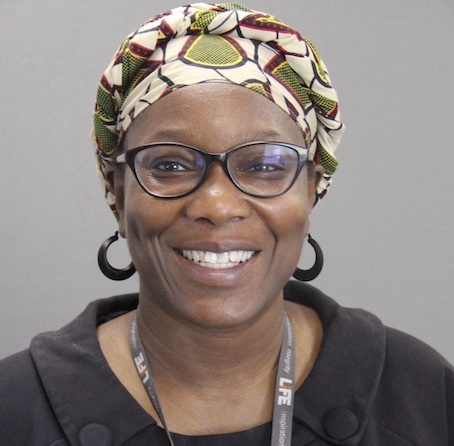
Natasha Boyce
MA Black Humanities
Natasha Boyce is a secondary school teacher with over twenty year’s experience of teaching within
the Humanities. She is also a senior leader and holds the responsibility for driving racial justice across a multi-academy trust constructed of ten schools. Much of Natasha’s racial justice work has been in collaboration with the Stephen Lawrence Research Centre based in Leicester, and she has been a part of a Racial Literacy programme for all secondary schools city-wide. Natasha is particular interested in the history and legacy of African colonialism.

Alex Gibson
Music
Alex Gibson is a is a PhD candidate at the University of Bristol.
His research project focusses on the prevalence of conspiracy theory narratives in hip-hop music and culture. He has lectured on topics including intertextuality, postcolonialism, and aesthetics. His general academic interests centre on hip-hop and electronic music, and the intersection of race, class and political identity in these contexts.
Tony Jackson
MA Black Humanities
Tony Jackson is from Bronx, N.Y. in the United States. He received his undergraduate degree from NYU in
English Literature with a minor in African American Studies. Tony has always loved black women authors and poets which ultimately led him to create his own podcast series, in which he speaks with multiple people of color about their lived experiences and their views on black society. Tony is excited to bring the series overseas to a place like Bristol. Coming to the University of Bristol felt like coming to a second home and Tony couldn’t be happier. He hopes his work will inspire the people around him and the next generation to truly understand the richness and fullness that encompasses black creativity.

Adriel Miles
Music
Adriel Miles is currently a musicology PGR in his second year in the Department of Music.
His research project, ‘Decolonial programme design: Black music students and the Bachelor of Music curriculum’, is a focused analysis of tertiary level music pedagogy in the UK through the lens of the experiences and needs of Black student composers. He is supervised by Dr Justin Williams, who is also a member of the Centre for Black Humanities, and Prof Michael Ellison, an eminent composer and pedagogue in the department.
Adriel is a contributor to the forthcoming Intellect handbook The Places and Purposes of Popular Music Education (expected 2021). During the 2021–22 academic year, he is also a Student Fellow with the Bristol Institute for Learning and Teaching (BILT), researching the topic ‘Decolonising the curriculum’ alongside Prof Alvin Birdi. Apart from research into music composition pedagogy and decoloniality, he is also a composer and producer working within and beyond contemporary classical music.

Ivan Mouraviev
Music
Ivan Mouraviev is a PhD student in musicology
working with Dr Justin Williams and Dr Florian Scheding. His thesis examines DJ culture and performance practice in Afro-diasporic electronic dance music (EDM), with case studies in Bristol, Outlook Festival (Croatia) and online. The project responds to the transformation of EDM over the last decade, where Black British genres such as drum ‘n’ bass, dubstep, and grime have become enmeshed in a global discourse of ‘bass music’ and the power of low-frequency sound is foregrounded in musical practice and identity. Ivan‘s thesis historicises these patterns and logics in contemporary EDM and analyses the evolving nature of DJ performance in particular. His thesis contributes to areas including black sound studies, affect theory, and popular music studies. Other research interests include music & the internet and music in video games.

Matthew A. Williams
Music
Matthew A. Williams is currently a musicology PhD candidate at the University of Bristol.
His research is about gospel-pop, sacred-secular crossovers. He is using philosopher Charles Taylor’s concept of ‘A Secular Age’ to discuss the influence of gospel on pop music. Matthew currently holds a role as an external music tutor at Oxford University. He was the recipient of the 2019 Alumni Bursary at the University of Bristol. He has been an assistant tutor at the university and has lectured at masters and undergraduate level on topics from African American music to Intertextuality and Semiotics. He has also lectured on the prestigious Fulbright programme on music and The Civil Rights Movement of the 1960s. He has a book chapter forthcoming in an edited volume entitled Black British Gospel Music from the Windrush Generation to Black Lives Matter with Routledge Press. Matthew is also very busy as full-time secondary school music and music technology teacher!
